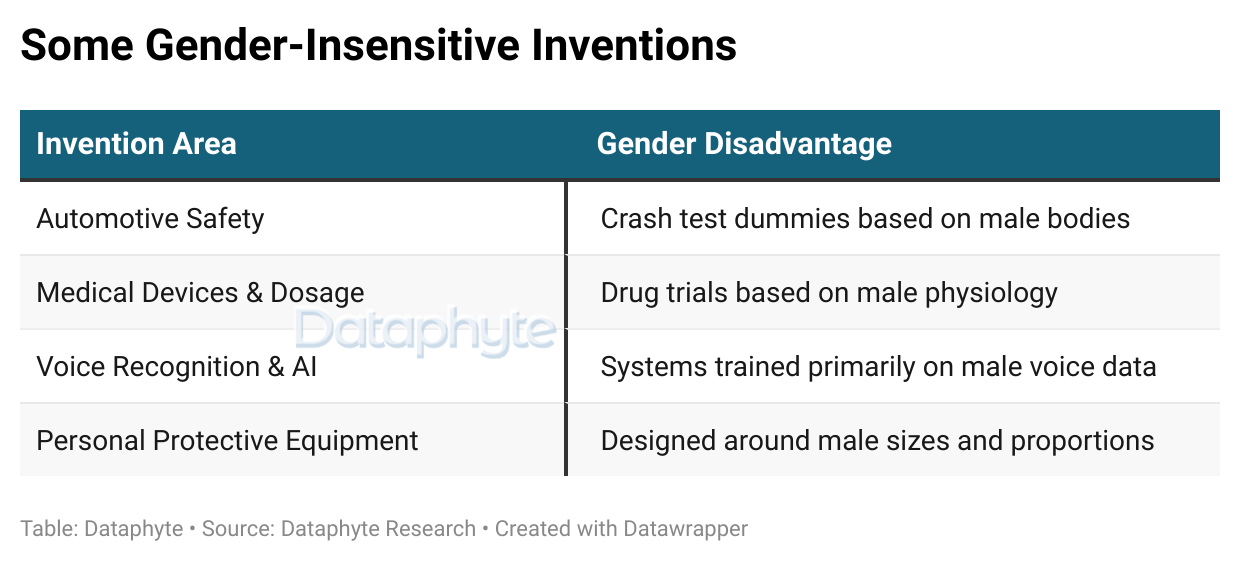In an era of rapid technological progress and the emergence of Artificial Intelligence (AI), a troubling truth persists: many of the innovations shaping our lives, whether in medicine, transportation, artificial intelligence or workplace technology, are still designed without fully considering their impact on all genders. This design bias isn’t merely an oversight; it’s a serious flaw that puts health, safety, and well-being, especially for women, at risk.
An example is the speculum, a medical tool used in pelvic exams. Invented in 1845 by a male doctor, its basic design hasn’t changed much since the 1960s. Despite vast improvements in other medical technologies, this metal device remains a source of discomfort and anxiety for many women. The unpleasant experience it creates has led countless women to delay or avoid vital medical appointments altogether, 91% of women fear pelvic exams. and 72% delay in these critical visits.
This is just one example of a broader issue: many inventions are not gender-sensitive.
Explore Our Publications
We release in-depth research publications and publish compelling data-driven reports on a wide range of topics.





